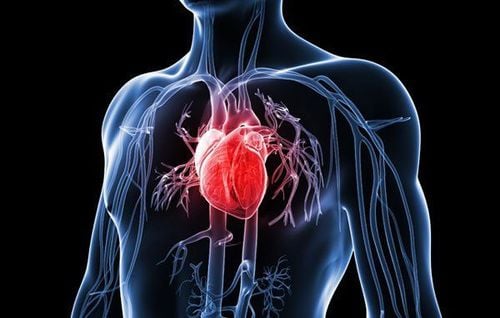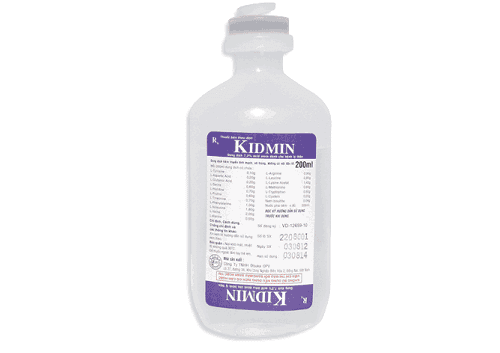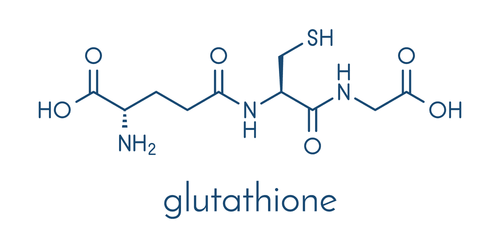This is an automatically translated article.
Glycine is an amino acid that the body uses to make proteins and make other important substances, such as hormones and enzymes. Along with being a component of protein, glycine has a number of other impressive health benefits. Here are 9 health benefits and uses of glycine.
1. What is Glycine?
Glycine is an amino acid or a building block of proteins. The main sources of Glycine are protein-rich foods including: Meat, fish, dairy and legumes. Glycine can also be taken as a supplement.
Glycine is involved in the transmission of chemical signals in the brain, so scientists use it for schizophrenia and improve memory

Glycine được tìm thấy trong các loại thịt, cá
2. 9 uses of Glycine
2.1 Raw materials needed for the production of antioxidants
Glycine is one of three amino acids your body uses to make glutathione, which is a powerful antioxidant that helps protect cells against oxidative damage caused by free radicals.
2.2 Ingredients of Creatine
Glycine creates a compound called creatine. Creatine provides energy for muscles to perform short, fast activities.
When combined with resistance training, creatine supplementation has been shown to increase muscle size and strength. It has also been studied for its beneficial effects on bone health, brain function, and neurological conditions such as Parkinson's disease and Alzheimer's disease.

Glycine tạo ra một hợp chất Creatine giúp ngăn ngừa bệnh Parkinson
2.3 Main Amino Acids of Collagen
Collagen is a structural protein that contains high amounts of glycine. Collagen supplements have been shown to benefit skin health, reduce joint pain, and prevent bone loss. Therefore, you need to get enough glycine to support the body's collagen production.
2.4 Can improve sleep quality
Glycine has a calming effect on the brain and can help you fall asleep and stay asleep by lowering your core body temperature.
Research in people with sleep problems has shown that taking 3 grams of glycine before bed reduces the time it takes you to fall asleep, enhances sleep quality, reduces daytime sleepiness, and improves cognition .

Glycine giúp cải thiện giấc ngủ một cách hiệu quả
2.5 May protect the liver from alcohol damage
Excessive alcohol use is harmful to the body, especially the liver. Studies show that glycine can reduce the harmful effects of alcohol on the liver by preventing inflammation.
In a study in rats with alcoholic liver damage, Glycine was shown to reduce blood alcohol levels.
2.6 Can protect your heart
Glycine prevents the build-up of a compound that is linked to atherosclerosis, which hardens and narrows the arteries.
Glycine may also improve the body's ability to use nitric oxide, which is an important molecule that increases blood flow and lowers blood pressure.

Glycine giúp ngăn ngừa một số bệnh lý liên quan đến tim mạch
2.7 Can help people with type 2 diabetes
People with type 2 diabetes can cause low glycine levels. This condition is characterized by impaired insulin secretion and action, which means your body doesn't produce enough insulin or it doesn't respond properly to the insulin it makes itself.
Therefore, people with type 2 diabetes may benefit from glycine supplementation, although the above studies are still in the early stages and cannot make any specific recommendations.
If you have type 2 diabetes, the best way to reduce insulin resistance is to lose weight with diet and exercise.
2.8 May help fight muscle loss
Loss of muscle leads to a decrease in body mass and muscle strength, reducing functional status and possibly complicating existing diseases. Glycine can stimulate muscle growth.

Glycine giúp chống mất cơ và kích thích tăng trưởng cơ bắp.
2.9 Easy to add to the diet
Glycine is available as a dietary supplement in capsule or powder form. Having a sweet taste, glycine can be easily incorporated into the diet.
Any questions that need to be answered by a nutritionist at Vinmec International General Hospital, you can contact Vinmec Health System nationwide or register online HERE.
References: healthline.com, webmd.com
SEE MORE
Nutritional composition of spinach Moringa leaves are not good for everyone to eat. Spinach is a sedative, cools the liver, and detoxifies heat.













